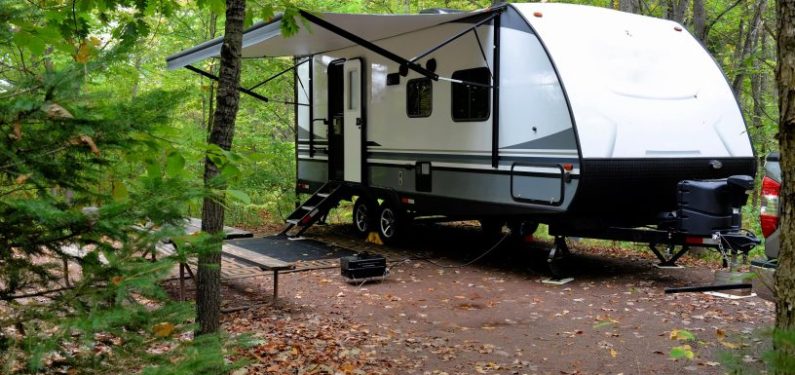
What to Know About RV and Travel Trailer Insurance
October 27, 2022Camping is a great way to vacation. It is an option that has grown by leaps and bounds in the past few years. Statistics show that Millennials and Gen Xers now make up over 70% of the camping population. Camping can be a less expensive option over a more traditional vacation excursion. As you embark on that great family week of “back to nature”, what should you consider from an insurance perspective as you travel down the highway with your new mobile vacation home? Here is what to know about RV and travel trailer insurance:
What to Know About RV and Travel Trailer Insurance
The travel trailers and motorhomes that we see today are much more sophisticated and better equipped than what was available twenty years ago. There are more gadgets that can fail or be damaged, such as air conditioning, satellite dishes, HDTVs, and more.
The units are larger and longer than in the past. All these characteristics increase the value of your mobile vacation home. We will identify some of your risks and exposures and, discuss some possible ways to protect yourself from these devastating events, including with trailer insurance.
1. A Standard Auto Policy May Not Provide Full Coverage
On a standard or traditional auto insurance policy that would cover the travel trailer, protection for the unit itself would pay on a depreciated basis just like the policy pays for your car or truck. This could be devastating depending on the age and style of your camper. You may not receive a large enough payment to repair or replace your unit.
Roadside Assistance for RVs and Trailers is Limited or Nonexistent on Standard Auto Policies
A frequent and frustrating claim with your trailer may be a roadside breakdown or emergency, such as a flat tire, broken axle, or failed wheel bearing. Many policies will pay a very limited amount for roadside coverage or towing, if any amount at all.
Roadside assistance is of the things to consider when customizing your car insurance policy for your regular vehicles. For an RV or travel trailer that isn’t covered, this can be a very expensive and time-consuming situation, let alone the ruin of your long-anticipated vacation.
2. Standard Auto Policies Don’t Usually Cover Liability at the Campground
When you arrive at the campground, what and how might your responsibilities and obligations change once you unhook your camper from the towing vehicle? When you are traveling down the highway, the liability for your trailer is automatically extended from your towing vehicle.
But when you unhook your unit at the campsite, the liability from your towing unit may no longer extend to the travel trailer. If a friend or a camping neighbor is injured by your camper, where is your protection? This is something to think about when you need insurance for a trailer.
Make Sure You’re Covered With RV Insurance and Trailer Insurance
As you consider all the potential situations, what are your options to have the level of coverage and protection to guard against a “ruined” vacation?
Consider the Finances
First, evaluate and list what your investment is in your travel trailer. What can you afford out of pocket and how fast can you get assistance when you are on the road? What is your financial position and can it stand a large layout to get your trailer back in operation?
Consider Your Current Coverage
Second, do you have all the perils, causes of loss, covered that you would expect to have covered? You need to read your policy, look over the policy DEC page, and have a discussion with your agent to make sure you understand the items and circumstances covered, those excluded, and the limitations on payment amounts including deductibles.
Consider RV Insurance for the Coverage You Need
Third, have the discussion as to where you have protection against an injured party as a result of your unit while at the campsite or during winter layup. This could vary by carrier and policy language, so again, ask the questions beforehand. Recreational vehicle insurance could be exactly what you need.
Talk to Ruhl Insurance About RV and Travel Trailer Insurance Before Your Next Camping Trip
With the increasing popularity of camping and the larger and more sophisticated travel trailer units on the road and in the campsites, it is imperative to be informed properly as to your increased financial risk both related to your personal investment and liability relating to others. The emotional trauma for both you and the other party caused by that ruined vacation is a prime catalyst to begin the thoughts of “how can I be compensated?”
As you consider your next camping vacation or begin looking to purchase your camper, give us a call to discuss those areas that cause concern for you or which you may not be certain of the answers to your questions. You can reach any of our professional and knowledgeable staff here at Ruhl Insurance by calling 717-665-2283 or 800-537-6880. We look forward to helping you plan a fun and safe vacation.
Disclaimer: Information and claims presented in this content are meant for informative, illustrative purposes and should not be considered legally binding.

